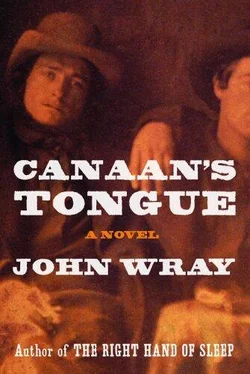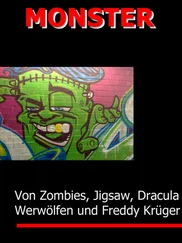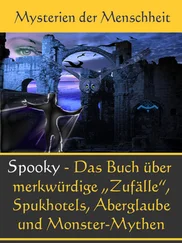Clementine says nothing.
“Where did you sleep last night?” I take a slow step toward her. “It’s important, darling, that I know.”
She moves away as I approach, keeping an armful of reproving air between us. She’s dressed in a shift left behind by one of the maids, billowing in great loose folds from her rail-thin body, black at the hem with the dust of countless floors. That filament of beauty which is left to her is more than enough to make the blood run backwards in my veins. She looks at me in a way I find myself utterly unprepared for—: not hatefully or fiercely, but with a steady, desperate interest, an interest which for a moment I misjudge and which quickens my heart in its envelope of tired flesh.
“Clem,” I whisper. Is my long wait at an end?
Something in her look, however, stops me in my tracks. It’s an expression I’ve seen before, but never on Clementine’s proud face. In the next instant I’ve recovered myself and understood her look for what it is.
“You’re not afraid of me, Clementine?”
“I’ve always known it when you told a lie,” she answers. Her voice is dull as cloth. “It gets into my ear and fusses. Like singing false notes in the choir.”
I take a step toward her. “Have you ever once known me to sing on key?”
She stands her ground. Her eyes are fully open, her fists are rigid at her sides. “You were lying just now,” she says. “Lying to the Colonel.”
“Nonsense,” I say quickly. “I barely—”
“All this time,” she says. “You never guessed that I was watching, did you? You thought that I was long past seeing you. But I was watching, just the same—: watching, and comparing what I saw with all the fine things I remembered. All the fine things I remembered about you, when you were still a living, breathing man.”
“Clem—” I say, but nothing else emerges. I’ve forgotten how to speak to her.
“Here I am, Aggie. Just as you’ve been hoping. Face to face with you—; close enough to see.” She sucks in a frightened breath. “Tell me what you did to him. Was there pain?”
“Who?” I say. My head begins to shake.
“Don’t play the fool with me, Aggie. I won’t tell Parson or the others.” She hushes, then says almost soundlessly—: “He deserved what he got, after all.”
A green crescent drifts across my sight, turning to the left and sparking.
“Let’s not speak of this, Clem, I beg of you. Not here.”
She studies me a while, then twists her neck sharply to one side and spits. Her proud unbending neck, that once reddened and inclined toward me. Her brown incriminating eyes. The spittle glistens stupidly against the floor.
“You’re a coward yet,” she says in a quavering voice. “Even now, with every last thing taken from you.”
Each time we’re alone the moment arrives, whisperingly and unbidden, when I forget all that’s happened since I first beheld her. I speak at such moments without thinking.
“If I’ve told lies—” I hear myself stammer, the words rattling in my mouth like cracked seeds in a gourd—“I told them to keep you close to me—; to clear the others out, to hollow out a place for you and I—”
She draws herself up at this and lets me look at her, rewarding me for my foolishness as she has always done. Her face comes near to mine, lit along its left side, and I’m allowed to leap-frog over entire years, and only see—: the wide-set eyes, the narrow freckled shoulders, the Catholic mouth. Her skin has become papery at some point without my noticing but it’s still lit as if from the inside, and I know that it’s hot to the touch, like the shade to a paper lamp. That is what I remember best—: Clementine lit by a red Chinese lantern on her left side, her arms lifted toward me, her small immaculate body glowing like a lamp itself.
I raise my right hand and she allows it to settle on her shoulder, stricken and hapless, curled in upon itself like the carcass of a bird. Her entire body deadens at its touch. She lets out a breath. The last breath she draws will have that sound—: infinitely calm, infinitely bitter.
“You killed Goodman Harvey, Virgil Ball.”
Clementine, at least, believes in me.
CONDUCTED BY COL. ERRATUS D’ANCOURT, L.P., M.M.D.C.
GEBURAH PLANTATION, 12 MAY 1863. VIRGIL BALL—: MINUTES.
COLONEL —Mr. Kennedy. Good of you to come so quickly. Another round of interviews, I’m afraid.
KENNEDY —That’s all right, Colonel. You can get stu fed.
COLONEL —Were you out at the privy just now? Is that where Virgil found you?
KENNEDY —Why don’t you ask huh! — huh! — him?
COLONEL —Out there all morning, were you? (PAUSE) — Touch of the binds?
KENNEDY —You can go and get worked, you god-damned—
COLONEL —You might not think it important that I know where you’ve been keeping yourself, Mr. Kennedy, but it’s of great and pressing interest to us all. (QUIETLY) One of our number has been taken in the night, you see.
KENNEDY —Is that a fact, you old gasser? And weren’t I there in Harvey’s room to see it? (PAUSE) — What was it? Something that he ate?
COLONEL —Answer my question. Four to eight o’clock this morning.
KENNEDY —Either you tell me cause of death, you old wig-licker, or I’m back on that privy quicker than you can part your nose-hairs.
COLONEL —Most likely that’s where you’ll do us the most good. (PAUSE)— It was poison, near as we can judge. (PAUSE) — Harvey himself was our physician, so you see the difficulty. The lay of the body, however, and what we know of Harvey’s character tend to rule out self-murder—
KENNEDY —Ha! That’s what you boys reckon. If you was to ask Stuts Kennedy—
COLONEL —I’ve asked you a question already. Kindly answer it.
KENNEDY (PAUSE) — Got up somewhere about six. Couldn’t lie right.
COLONEL —What then?
KENNEDY —Puh! — puh! — put my uppers on. Had a look about.
COLONEL —At six o’clock this morning?
KENNEDY (NODS)
COLONEL —Well? Where did you go, Mr. Kennedy? And what, pray tell us, did you—
KENNEDY —Saw your Parson.
COLONEL —Where?
KENNEDY —In the kitchens. (PAUSE) — He come in from the field. (PAUSE) — Gardens.
COLONEL —You saw him come into the house at six o’clock this morning?
KENNEDY —Six-thirty. Sun-up.
COLONEL —Was there anyone else about?
KENNEDY (SMILES) — No, Colonel. Just your Parson.
COLONEL —Did you exchange words?
KENNEDY (NODS) — I goes up to him where he were suh! — suh! — standing at the bread-box and says—: Come down from the tree-tops are you, you barbary ape? And he goes queer as always and guh! — guh! — gives me the regular song-and-dance.
COLONEL —That’s fine, Kennedy. In other words—
KENNEDY —No by Christ I mean for you to hear this, you damned tea-sipper. Parson puh! — puh! — puts a biscuit in his gob, pleased as piss with himself and all of his transactions. Tell me Stutter, he says, taking hold of me by the arm. What might your philosophy be?
COLONEL (PAUSE) — Well?
KENNEDY —To get by, says I. (PAUSE) — Yes, he says. But how are you going to get by, Stuts? Let me explain something to you. There’s two languages spoken in this country—: the language of livestock and the language of Canaan. I speak both fluently, and I’m going to learn you something of their ways. Listen cuh! — cuh! — closely and attend. (PAUSE)
Читать дальше












